
Lit Hub’s Most Anticipated Books of 2021
228 Books We're Looking Forward to This Year
MAY
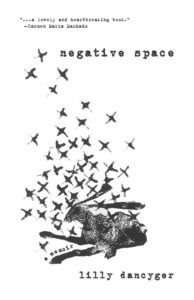
Lilly Dancyger, Negative Space, Santa Fe Writer’s Project (May 1)
In editor and essayist Dancyger’s debut memoir, she re-evaluates a childhood spent idolizing her father, Joe Schactman, an artist and a heroin addict who died suddenly when Dancyger was young—and embarks on a journey to demythologize, and finally understand, the man himself. As a fan of Dancyger’s whip-smart essays and criticism, I’m definitely looking out for this one. –ET

Kate Durbin, Hoarders, Wave Books (May 4)
Each poem in this book is a portrait of a person and the objects they hoard. The frame is a reality TV show; Durbin juxtaposes character narration with envisioned images onscreen. The result: an absurd, bracingly funny depiction of the misery of consumerism—but also something tenderer, about the attachments that make up a life. –WC
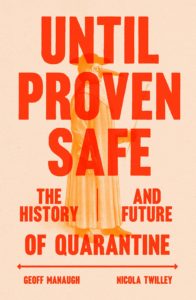
Geoff Manaugh and Nicola Twilley, Until Proven Safe: The History and Future of Quarantine, MCD (May 4)
It is definitely too soon to be publishing a history of Covid-19, particularly anything that might make claims about handling it well… Thankfully, this is not that. Until Proven Safe is an urgent account of how human beings have tried—and often failed—to contain the viral miseries that have literally plagued us since pre-history, from early lazerettos to the hermetically sealed labs at the CDC. Painfully—fatally—we now know that one person’s strict lockdown is another person’s maskless trip to Dairy Queen, so as we enter what *should* be the final phase of the Covid-19 pandemic, let’s hope we don’t end up as just another grim chapter in future editions of this book. –JD

Muriel Leung, Imagine Us, The Swarm, Nightboat (May 4)
Muriel Leung’s poems never flinch, and they never allow you to look away from the difficult, the contradictory, or the painful. Leung’s unforgettable Bone Confetti won the Noemi Press Book Award and brought much-deserved attention to her sharp, inventive approach to language; Imagine Us, The Swarm turns her vision toward an intergenerational story of violence, vengeance, and forgiveness. –CS

Joy Harjo, ed., Living Nations, Living Words: An Anthology of First Peoples Poetry, W.W. Norton (May 4)
I mean it’s Joy Harjo! First Native American to become the US Poet Laureate (and hold an unprecedented three terms!) Joy Harjo. What more should I say? But seriously, Harjo has edited an incredible volume of contemporary Native poetry into a “digital map of story, sound, and space.” There is work from Natalie Diaz, Ray Young Bear, Craig Santos Perez, Sherwin Bitsui, and Layli Long Soldier, among many others. This should be required reading for everyone, really. –RS

Henry Dumas, Echo Tree: The Collected Short Fiction of Henry Dumas, Coffee House (May 4)
Henry Dumas is one of my favorite poets ever, and few know his name. There are reasons for this: for one, he was killed at quite a young age—in 1968, at the age of 28, by a police officer. But Toni Morrison said his work had “the quality and quantity almost never achieved in several lifetimes.” Dumas’ selected poetry Knees of a Natural Man was published in October 2020, and now we have his collected short fiction, which features gothic romances, psychological thrillers, ghost stories, and more. Trust me, Reader, Dumas is electric, with writing that pulses through the vein, pumping straight for your heart. –RS
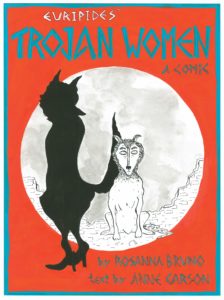
Rosanna Bruno and Anne Carson, The Trojan Women: A Comic, New Directions (May 4)
What do you get when you cross Euripides’ classic tragedy, the artistic stylings of Rosanna Bruno, and the poetic touch of Anne Carson? This book! This book that I, for one, am absolutely anticipating. (I have loved comic book renditions of classic myths and stories ever since reading R. Crumb’s illustrated Book of Genesis. There’s just so much room to play and experiment!) Here’s what we know: Troy has been ravaged. Everyone is depicted as an animal (except Kassandra, who is another planet, which actually makes complete sense when you think about it). I mean, need I say more? –KY
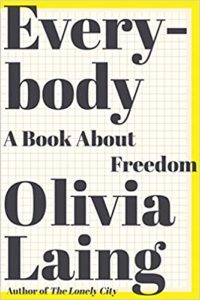
Olivia Laing, Everybody, W.W. Norton (May 4)
Drawing from complicated historical figures like Nina Simone, Christopher Isherwood, Andrea Dworkin, Sigmund Freud, Susan Sontag, and Malcolm X, Laing charts the longstanding struggle of bodily autonomy, with due consideration of gay rights and sexual liberation movements, feminism, and civil rights. She also grapples with her own experiences with protest and her own approaches to alternative medicine. –RS
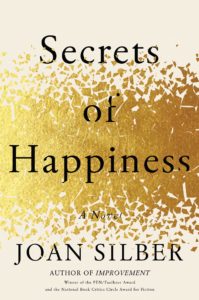
Joan Silber, Secrets of Happiness, Counterpoint (May 4)
A new Joan Silber book is always a reason to celebrate. Her latest is the story of a family—two families—exploding after a years-long infidelity comes to light, told in intersecting, polyphonic voices, like a tapestry of those affected. Silber used a similar technique splendidly in Improvement; I’m looking forward to seeing what she does with it here. –ET

Alison Bechdel, The Secret to Superhuman Strength, Houghton Mifflin (May 4)
HECK YEAH new Alison Bechdel! Can that be the blurb? No? That’s okay; I have a lot of effusive things to say about Alison Bechdel, brilliant illustrator and creator of the Bechdel test. Have you read her incredibly moving graphic tragicomedy Fun Home? What about her cornerstone comic Dykes to Watch Out For? If you’ve answered no, then the good news is you have five months to catch up. Once you’ve sped through both of those, you too will be anticipating The Secret to Superhuman Strength, in which Alison Bechdel turns her careful attention and heartfelt wit to exercise and fitness fads. Spin classes?! She’s coming for you! –KY
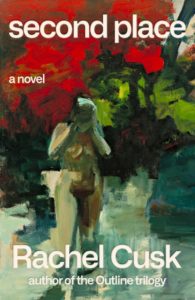
Rachel Cusk, Second Place, FSG (May 4)
From the author of the most Instagrammable literary trilogy in recent memory (and also one of the best, but what does that matter in this economy?), comes a “fable of human destiny and decline,” which, from the sounds of it, hits all the notes Cusk plays so very well, asking questions about art, gender, relationships, morality, and all the weird, uncomfortable realities that come from being conscious and in the world. Can’t wait. –ET

Donika Kelly, The Renunciations, Graywolf (May 4)
A new book of poems from the author of the excellent Bestiary, described by the publisher as “a book of resilience, survival, and the journey to radically shift one’s sense of self in the face of trauma.” –ET
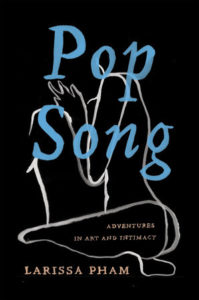
Larissa Pham, Pop Song: Adventures in Art & Intimacy, Catapult (May 4)
Part memoir-in-essays, part art theory, Pop Song juxtaposes Larissa Pham’s memories of a love affair and her musings on sex, intimacy, and trauma with echoing works of art, including Nan Goldin’s “Heart-Shaped Bruise” and Frank Ocean’s Blonde. Speaking of echoes, its description strikes me as peak resonant with the past year: “a perfectly fractured portrait of modern intimacy that is triumphant in both its vulnerability and restlessness.” –ES
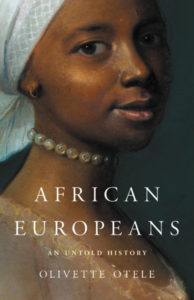
Olivette Otele, African Europeans: An Untold History, Basic Books (May 4)
As the BISAC categories for this book show, the concept of African Europeans is apparently a confusing one: the book is assigned to “Africa, General,” “Women” and “Nonclassifiable,” even though the world European is in the title. And if BISAC categories don’t even make a space for African Europeans, then how did the figures Otele writes about establish their cross-cultural identities at a time when social, ethnic, and racial categories were becoming increasingly rigid? And how can the story of Africans in Europe be recast not as the stories of outliers, but as the narrative of a people? Check out Olivette Otele’s illuminating history of African Europeans for answers to these questions and more. –MO
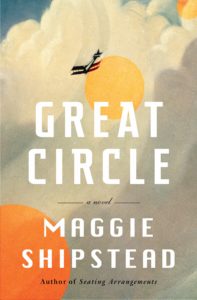
Maggie Shipstead, Great Circle, Knopf (May 4)
Give me a dual narrative of two women in different centuries just trying to live their best lives, and I’ll be there. Striving Woman No. 1 is Marian Graves, a globe-trotting pilot with a dangerous patron whose infamous story comes to a dramatic end when she disappears in Antarctica. Striving Woman #2 is Hadley Baxter, cast to play Marian in a biopic and eager to transcend Hollywood’s blatant sexism. I trust Maggie Shipstead to land this plane with minimal turbulence. –ES
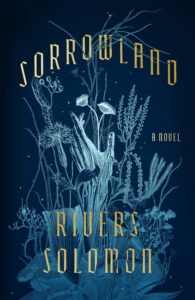
Rivers Solomon, Sorrowland, MCD (May 4)
I’ll be setting aside a weekend to read Sorrowland, which feels like the only right way to do it. In the woods, a woman named Vern gives birth to twins. She’s fled a religious compound and plans to raise her children apart from the world, but the compound wants her back, and Vern’s defenses become ever more violent and unfathomable as her body transforms on its own accord. –ES

John Freeman, ed., The Penguin Book of the Modern American Short Story, Penguin Press (May 11)
I’m a sucker for short story anthologies—I’ll buy them all. They almost always introduce me to something new, and remind me of things I already love. Penguin’s latest surveys the last 50 years and includes stories by Ursula K. Le Guin, Lauren Groff, Lydia Davis, Toni Cade Bambara, Ken Liu, Jhumpa Lahiri, George Saunders, Susan Sontag, Sandra Cisneros, Grace Paley, Ted Chiang, and others. –ET
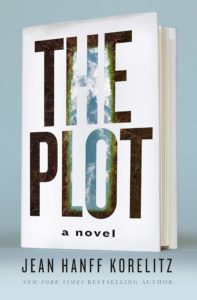
Jean Hanff Korelitz, The Plot, Celadon Books (May 11)
Jean Hanff Korelitz wrote the novel behind HBO’s recent series The Undoing, and her newest novel promises to deliver just as many surprises. In this wickedly clever tale of stolen genius, a disappointed writer working at a dead-end job doesn’t expect much from his MFA students—at least, until one of them dies, leaving his MOST promising manuscript behind. It only takes a little tinkering for Korelitz’s narrator to pass off the masterpiece as his own. Will the literary world ever learn of its true authorship? –MO

Edmund de Waal, Letters to Camondo, FSG (May 11)
When world-renowned ceramic artist Edmund de Waal was invited to show his work at the Paris house-turned-museum of late 19th-century art collector Moise de Camondo—a wealthy philanthropist who was eventually murdered by the Nazis—he felt himself compelled to write a series of letters to his long-dead “benefactor.” Similar to de Waal’s forebears, the Ephrussi family, the Camondos were subject to rampant French antisemitism, despite their innumerable contributions to Belle Epoque society. De Waal, who won the Costa Biography Prize for The Hare with Amber Eyes, is one of those multidisciplinary talents, and his writing is not to be missed. –JD

Tracy K. Smith and John Freeman, eds., There’s a Revolution Outside, My Love, Vintage (May 11)
In a world wracked by polarized politics, a bruising pandemic, and injustice that precipitates and beats down on protests, the collection There’s a Revolution Outside, My Love provides a warm, poignant gathering from all across America of some of our most notable voices—poems, essays, laments, psalmic meditations—that sing of the sorrow and beauty and uncertainty and hope of the moment. These are letters written from the inner chambers of the heart, resonating with the questions that keep us up at night, and offering the recognition and generosity that helps us to step outdoors in the morning. As Kirsten West Savali, whose essay supplied the collection’s moving title, says: “I promise you this: You will see your pain in others, as I see my pain in you. You will see your power in others, as I see my power in you. And now, right now, I call on all of our ancestors to guide my steps in such a way that I’m still alive to love you through it.” This book is a promise, a solace, a sounding of our cries for justice and need for love. It’s nothing short of essential. –Garnette Cadogan, Contributing Editor

Daniel Kahneman, Oliver Sibony, and Cass R. Sunstein, Noise: A Flaw in Human Judgment, Little, Brown Spark (May 18)
Doctors give different diagnoses to identical patients. Judges assign different sentences to the same crime. This type of “noise,” variability in judgments that should be identical, ruins lives every day, and I’m panicking just thinking about it. Noise: A Flaw in Human Judgment shows us how noise creates error in many fields, then how we as individuals can reduce noise in our own lives. Let’s get optimizing! –WC

Aminatta Forna, The Window Seat: Notes From a Life in Motion, Grove Press (May 18)
Aminatta Forna moves through the world—in nature, in the city, in transitional spaces; from Sierra Leone to Scotland to Iran to Mali to the United States—with a shrewd eye and nimble intelligence that makes her every observation a beguiling adventure. And you want to follow her closely, for she’s an astute guide attuned to the complexities of movement and displacement, history and memory, politics and race, family and animals, love and loss. In a series of intertwined essays full of wit and smarts, The Window Seat: Notes From a Life in Motion, she overflows with insight that helps us wrestle with what it means to see the world as a shared space. This eloquent book, propelled by Forna’s capacious mind and big heart, is a vital meditation on how we belong and how we should embrace others to help them find a home in places of unease. –GC
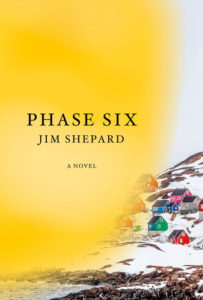
Jim Shepard, Phase Six, Knopf (May 18)
From a National Book Award finalist comes a searing novel about the next pandemic. In fact, this novel was written before the COVID-19 pandemic even occurred and, for some, is almost a sequel to our current, nightmarish crisis. The novel follows Aleq, an 11-year-old boy, who is one of the last survivors of the initial break and is likely patient zero. Through multiple perspectives and sweeping glimpses into the megastructures of our society, Shepard crafts a tale about the special bonds we forge during catastrophe and the other worlds we can mold from what’s left of the old. –RS
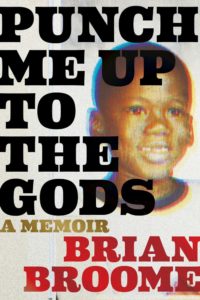
Brian Broome, Punch Me Up to the Gods: A Memoir, HMH (May 18)
Some memoirs derive their power from the exceptional circumstances of the writer’s life; others soar entirely on the unique register of the writer’s voice: by all accounts, Brian Broome’s Punch Me Up to the Gods works at both levels. With heartbreaking humor and tenderness Broome recounts life as a young Black man growing up in Ohio, struggling with an intense, unrequited longing that eventually leads to indiscriminate sex and substance abuse. While accounts of queer, Black life in America are far more prevalent today than they were even ten years ago, it would be hard to overstate the importance of telling more and different stories, that even one young person might see themselves portrayed and feel less alone in the world. –JD
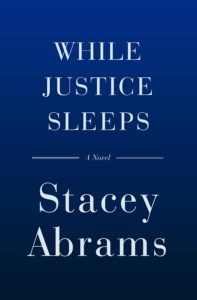
Stacey Abrams, While Justice Sleeps, Doubleday (May 25)
We should all be thanking our lucky stars for Stacey Abrams! Not only was she instrumental in our last election (YEAH, GEORGIA), but she really led the charge against voter suppression. (Sorry, I know this list is already long, but if I may pile on one more recommended reading, it’s her previous book, Our Time Is Now: Power, Purpose, and the Fight for a Fair America. It will light a fire under your ass.) It might come as a surprise, then, to some of you that her next book is actually a novel. And NO, it’s not a romance, like her other wildly popular novels. (Why is Stacey Abrams THE ACTUAL COOLEST?!) This one takes the form of a legal thriller, set in the hallowed halls of the Supreme Court. Hey, Stacey Abrams can do anything. I’m all in. –KY
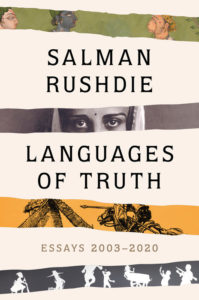
Salman Rushdie, Languages of Truth: Essays 2003-2020, Random House (May 25)
Some new Salman Rushdie is a big deal, okay. And this book offers newly collected, revised, and expanded essays (some never previously in-print) on the nature of storytelling, censorship, multiculturalism, and the malleability of language, among many pressing topics. What makes this text monumental is not only that it exclusively features work from the 21st-century but that it tracks Rushdie’s intellectual development with several cultural shifts that are defining features of this age. –RS
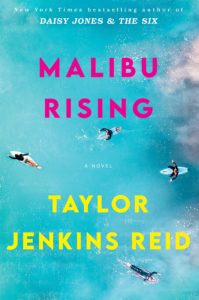
Taylor Jenkins Reid, Malibu Rising, Ballantine (May 25)
Four famous siblings throw a party, and it’s bananas. By midnight, the party is bonkers. And by morning, everything is just bat shit. What happens in between, you ask. You’ll have to read the book to find out. Don’t miss out on a story about what one keeps of people and what one leaves behind. –RS












